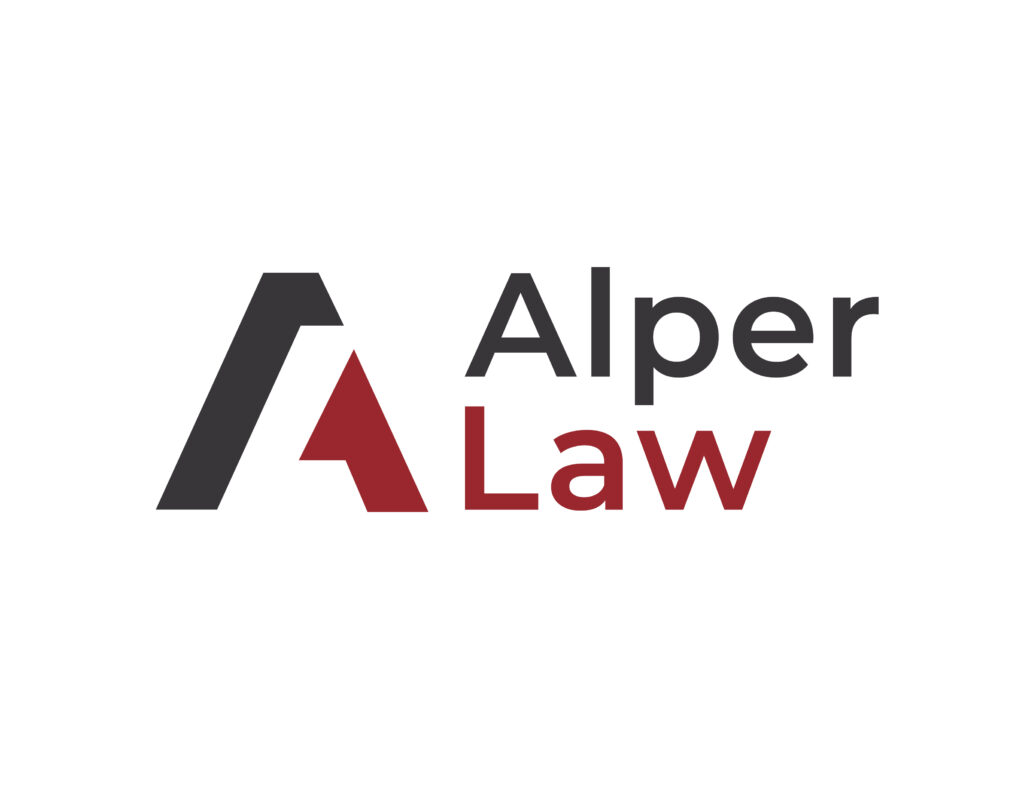The Basic Legal Framework
Inheriting a house with an existing mortgage creates immediate financial and legal responsibilities.
When you inherit real property with a mortgage, you inherit both the asset and the security lien attached to that asset. The mortgage lien remains attached to the property regardless of who owns it. However, federal law provides important protections for heirs that prevent lenders from immediately demanding full payment.
The Garn-St. Germain Act Protection
The Garn-St. Germain Depository Institutions Act of 1982 is a federal law that protects heirs who inherit mortgaged property. Under this law, lenders cannot enforce “due-on-sale” clauses when property transfers to certain family members upon the borrower’s death.
A due-on-sale clause is a standard mortgage provision that allows the lender to demand immediate payment of the entire loan balance when the property is sold or transferred. Without the Garn-St. Germain Act protection, inheriting a house would trigger this clause, requiring you to either pay off the mortgage immediately or face foreclosure.
The Act specifically exempts transfers resulting from the borrower’s death to a relative who will occupy the property as their principal residence. This protection also extends to transfers to a spouse or children regardless of whether they intend to occupy the property.
Your Payment Responsibility
When you inherit mortgaged property, you do not automatically become personally liable for the mortgage debt. The original borrower’s obligation to repay the loan does not transfer to you simply because you inherit the property.
However, the mortgage lien remains attached to the property itself. This means that if mortgage payments are not made, the lender can foreclose on the property to satisfy the debt. You must continue making mortgage payments if you want to keep the property, even though you are not personally obligated to repay the loan.
This distinction is important: if you stop making payments and the lender forecloses, the lender can take the property but cannot pursue you personally for any deficiency (the difference between the property’s sale price at foreclosure and the outstanding loan balance). Your liability is limited to losing the inherited property.
Schedule a Consultation Online
Alper Law is a nationally recognized expert in asset protection planning and implementation. For over 30 years, we’ve provided clear, actionable advice to thousands of clients about how to protect themselves from creditors.
We provide all services by phone or Zoom.

How Property Title Transfers at Death
The method by which you inherit the property affects the timing and complexity of taking ownership.
Property Passing Through Probate
Real property titled solely in the decedent’s name must pass through Florida probate before title transfers to heirs. During probate, the personal representative administers the estate, including managing any real property.
Florida probate generally takes 6 to 12 months for formal administration. During this period, someone must continue making the mortgage payments to prevent foreclosure. The personal representative typically makes these payments from estate funds if available.
Under Florida Statutes Chapter 733, the personal representative has authority to manage estate assets, including making necessary payments to preserve property value. Once the probate court approves distribution to heirs, the personal representative executes a deed transferring title to the beneficiaries named in the will or, if there is no will, to heirs determined by Florida intestacy law.
Transfer-on-Death Deeds and Lady Bird Deeds
Florida allows enhanced life estate deeds, commonly called lady bird deeds, which automatically transfer property to designated beneficiaries upon the owner’s death without requiring probate. If the decedent used a lady bird deed, you receive title immediately upon their death by operation of law.
With a lady bird deed, you should record the decedent’s death certificate with the clerk of court in the county where the property is located. This documentation establishes your ownership in the public records. You can then contact the mortgage lender to inform them of the ownership change and arrange to continue making payments.
Lady bird deeds avoid the delay and expense of probate, allowing you to assume responsibility for the property more quickly.
Property Held in Trust
If the property was titled in a revocable living trust, the property passes according to the trust terms without probate. The successor trustee has authority to transfer the property to trust beneficiaries.
Like lady bird deeds, trust-owned property avoids probate delay. The successor trustee can immediately work with the mortgage lender to continue payments and eventually transfer title to beneficiaries.
Tenancy by Entireties and Joint Ownership
Property owned by married couples as tenants by entireties automatically passes to the surviving spouse upon the first spouse’s death. Similarly, property held as joint tenants with right of survivorship passes automatically to the surviving joint owner.
These ownership structures bypass probate entirely. The surviving owner continues ownership by recording the deceased owner’s death certificate with the county clerk. The surviving owner was already on the mortgage (in most cases) and simply continues making payments as before.
Options When You Inherit a House with a Mortgage
Once you inherit mortgaged property, you have several options depending on your financial situation and goals.
Keep the Property and Continue Payments
The most straightforward option is to keep the property and continue making the existing mortgage payments. Under the Garn-St. Germain Act, the lender cannot demand full payment simply because you inherited the property.
You should contact the mortgage lender promptly to inform them of the borrower’s death and provide necessary documentation, including the death certificate and proof of your status as heir (such as probate documents, a copy of the will, or a lady bird deed). Most lenders will work with heirs to continue the existing loan terms.
The lender may require you to formally assume the mortgage. Assuming the mortgage means you agree to become personally liable for the debt. The lender will evaluate your creditworthiness and income to determine whether you qualify to assume the loan. If you qualify, you become the obligated borrower with full responsibility for repayment.
Even if you do not formally assume the mortgage, you can continue making payments. The lender will accept your payments and cannot foreclose as long as payments are current, even if you have not formally assumed the loan.
Refinance the Mortgage
You can refinance the inherited mortgage in your own name. Refinancing replaces the existing loan with a new loan based on current interest rates and your personal financial qualifications.
Refinancing may be advantageous if:
- Current interest rates are lower than the existing mortgage rate
- You want to change the loan term (for example, from a 30-year to a 15-year mortgage)
- You want to remove other heirs from the property title (if you inherited with siblings or other co-owners)
- You need cash from the property’s equity for other purposes
However, refinancing requires qualifying for a new mortgage based on your income, credit, and the property’s current value. You must pay closing costs, which typically range from 2% to 5% of the loan amount.
Sell the Property
You can sell the inherited property and use the proceeds to pay off the mortgage. If the property value exceeds the mortgage balance, you receive the remaining equity. If the mortgage balance exceeds the property value (a situation called being “underwater”), you may need lender approval for a short sale.
In a short sale, the lender agrees to accept less than the full mortgage balance as payment in full, allowing the property to be sold even when the sale price is insufficient to pay off the loan. Short sales require extensive lender negotiation and approval.
Selling inherited property involves:
- Obtaining clear title through probate or trust administration
- Working with a real estate agent to market the property
- Negotiating with buyers
- Using sale proceeds to satisfy the mortgage at closing
- Distributing any remaining proceeds to heirs
Let the Property Go to Foreclosure
If the property has little or no equity, needs substantial repairs, or you cannot afford the payments, you may choose to let the lender foreclose. Because you did not personally obligate yourself to repay the mortgage debt, foreclosure generally does not damage your credit or create personal liability.
However, allowing foreclosure means losing the property and any equity it contains. If the property has value, foreclosure wastes that inheritance. Additionally, if you formally assumed the mortgage and became personally liable, foreclosure would affect your credit and could result in a deficiency judgment against you personally.
Before choosing foreclosure, consider whether selling the property would preserve more value for you and other heirs.
Rent the Property
If the property generates rental income that covers the mortgage payment, property taxes, insurance, and maintenance costs, you might keep the property as a rental investment.
Renting the inherited property allows you to:
- Generate ongoing income
- Preserve the asset for potential appreciation
- Maintain the property for future personal use
However, becoming a landlord involves responsibilities and risks, including finding tenants, maintaining the property, complying with landlord-tenant laws, and handling rental income for tax purposes.
Multiple Heirs and Mortgaged Property
When multiple heirs inherit property with a mortgage, complications arise regarding who is responsible for payments and how decisions are made.
Joint Ownership Among Heirs
If multiple heirs inherit property through a will or intestacy, they typically become tenants in common, each owning an undivided percentage interest in the property. All co-owners have equal rights to use the entire property.
With multiple owners and an existing mortgage, the heirs must cooperate to:
- Decide whether to keep, sell, or rent the property
- Determine who will make mortgage payments
- Agree on how to handle maintenance and expenses
- Coordinate with the lender regarding the mortgage
Disagreements among co-owners can make managing inherited property difficult. Florida law allows any co-owner to file a partition action under Florida Statutes Section 64.031, requesting that the court either physically divide the property or order its sale with proceeds divided among the owners.
Keeping the Property When One Heir Wants Out
If some heirs want to keep the property while others want their inheritance value, the heirs keeping the property can buy out the others’ interests. This often requires refinancing the mortgage to obtain funds for the buyout.
For example, if three siblings inherit a house worth $300,000 with a $100,000 mortgage, each heir’s equity interest is $66,667 (one-third of the $200,000 equity). If one sibling wants to keep the house, that sibling could refinance for $166,667 (the $100,000 existing mortgage plus $66,667 for each of the other two siblings’ buyouts), paying off the original mortgage and compensating the other heirs.
Making Decisions About Payments
When multiple heirs inherit mortgaged property, determining who pays the mortgage can create disputes. If one heir occupies the property, that heir typically should pay the mortgage (or at least the portion equivalent to market rent). Other heirs should contribute proportionally to their ownership interest if the property remains vacant or if its rental income is insufficient to cover the mortgage.
Heirs should document any agreements about payment responsibility in writing to avoid future disputes.
Tax Implications of Inheriting a House with a Mortgage
Inheriting property with a mortgage creates several tax considerations.
Step-Up in Basis
When you inherit property, you receive a “step-up in basis” under federal tax law. Your basis in the property (used to calculate capital gains when you later sell) is the property’s fair market value on the date of the decedent’s death, not the price the decedent originally paid.
For example, if the decedent purchased the house for $150,000 in 2000, and it is worth $400,000 when you inherit it in 2025, your basis is $400,000. If you later sell the house for $425,000, you pay capital gains tax only on the $25,000 gain, not on the full $275,000 appreciation that occurred during the decedent’s ownership.
The step-up in basis applies regardless of the mortgage balance. Your basis is the property’s full value, not the equity (value minus mortgage).
Property Tax Considerations
In Florida, inheriting property can affect the property’s homestead tax exemption status and Save Our Homes assessment cap.
If the decedent claimed the Florida homestead tax exemption, that exemption ends upon their death. If you intend to make the property your primary residence, you can apply for the homestead exemption in your own name, but you must meet the requirements: the property must be your permanent residence, and you must occupy it as of January 1 of the tax year.
Florida law allows certain family members to transfer the Save Our Homes benefit (which caps annual assessment increases at 3% or CPI, whichever is less) when inheriting from parents or grandparents. Under Florida Statutes Section 193.155(8), if you inherit homestead property from a parent or grandparent, you may be able to transfer their accumulated Save Our Homes benefit to the inherited property, potentially resulting in significant property tax savings.
Mortgage Interest Deduction
If you continue paying the mortgage, you may be able to deduct the mortgage interest on your federal income tax return. To claim the deduction, you must be legally liable for the debt. If you formally assume the mortgage, you clearly qualify. If you make payments without assuming the mortgage, consult a tax professional about whether you can claim the deduction.
Estate Tax Considerations
Most estates do not owe federal estate tax because the federal estate tax exemption is $13.99 million for deaths in 2025. Florida does not impose a state estate tax.
If the decedent’s total estate (including the house) exceeds the federal exemption amount, the estate may owe estate tax. The personal representative is responsible for filing estate tax returns and paying any tax due before distributing assets to heirs.
Heirs do not pay inheritance tax in Florida—Florida does not impose inheritance taxes.
Special Situations
Certain circumstances create additional considerations when inheriting mortgaged property.
Reverse Mortgages
If the decedent had a reverse mortgage, special rules apply. A reverse mortgage is a loan available to homeowners age 62 and older that allows them to borrow against their home equity without making monthly payments. The loan becomes due when the borrower dies, sells the home, or permanently moves out.
When the borrower dies, heirs typically have six months to repay the reverse mortgage or sell the property. The lender cannot demand more than the property’s value, even if the loan balance exceeds that value due to accumulated interest and fees.
Heirs can:
- Pay off the reverse mortgage (typically 95% of the appraised value) and keep the property
- Sell the property and use proceeds to repay the loan
- Allow the lender to sell the property through foreclosure
FHA and VA Loans
Properties with FHA or VA loans receive the same Garn-St. Germain Act protections as conventional mortgages. Heirs can continue making payments without triggering the due-on-sale clause.
However, FHA and VA loans have specific assumption procedures that may differ from conventional loans. Contact the lender or loan servicer to understand the specific requirements for your situation.
Investment Properties vs. Primary Residences
The Garn-St. Germain Act provides broader protection when you inherit property and intend to use it as your primary residence. If you inherit a property the decedent used as a rental or investment property, and you intend to continue using it that way, discuss with the lender whether the due-on-sale clause will be enforced.
In practice, most lenders do not enforce due-on-sale clauses for inherited property as long as payments continue, regardless of how the property is used.
Homeowners Association Obligations
If the inherited property is subject to a homeowners association, the HOA obligations transfer with the property. Unpaid HOA dues and assessments become your responsibility as the new owner.
Under Florida law, HOA liens for unpaid dues can take priority over certain other liens. Address any delinquent HOA obligations promptly to avoid additional fees, interest, or foreclosure by the HOA.
Sign up for the latest information.
Get regular updates from our blog, where we discuss asset protection techniques and answer common questions.
Please enable JavaScript in your browser to submit the form
Publisher: Source link











